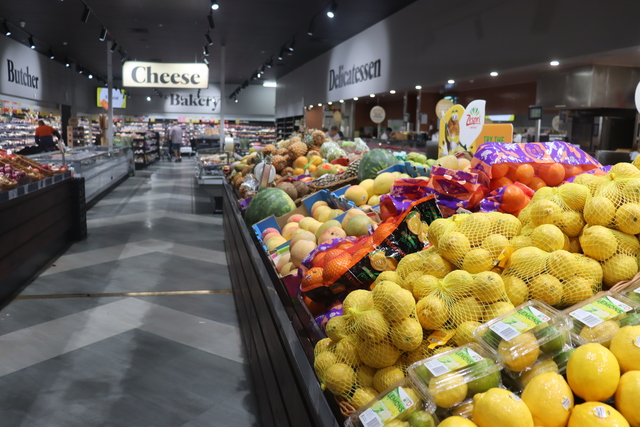The Food and Grocery Code of Conduct has been made mandatory and with it provides a glimmer of hope for Australian consumers and producers.
Australia produces enough fresh food to feed at least 80 million people, and about three-quarters of it is exported annually.
Despite this, according to the Foodbank Hunger Report 2024, 3.7 million Australians struggle to put food on their tables amid the ongoing cost-of-living crisis.
Under the current Federal Government, food prices have increased by 12 per cent since the beginning of their term.
However, shoppers and farmers can expect some relief with the Coalition’s introduction of a mandatory Food and Grocery Code of Conduct Bill as of 4 November.
Federal Member for Flynn Colin Boyce said he was committed to helping consumers and small businesses through this legislation.
“Competitive markets benefit everyone by ensuring lower prices, creating more employment opportunities, and fostering innovation,” Mr Boyce said.
“(The Australian Government) has completely failed on competition policy, just like it has failed to tackle its homegrown inflation.
“Families in Central Queensland are being forced to make tough decisions about what they can and can’t afford.“
This legislation has come after Australia’s two major supermarkets, Coles and Woolworths, were recently taken to the Federal Court for alleged fake discounts on products including and not limited to: dairy, pet food, personal care, coffee, medicine, confectionery, breakfast cereal, snacks, household cleaning, pasta and soft drinks.
Additionally, over 50 per cent of fresh produce, particularly fruit and vegetables, do not make it to supermarket shelves purely because of the produce’s appearance.
When this happens, supermarkets expect the producers to give their ’perfectly imperfect’ produce to them at a heavily reduced price or even for free, otherwise it gets thrown away.
Agforce Queensland chief executive Michael Guerin said it has been an uneven and hard negotiation to give producers a fair go.
“One of the challenges for producers is (the current code) gives no certainty about what they’re going to get for their products even if they produce good food,” Mr Geurin said.
“(Say) you’ve got a small family-owned business needing to sell the product quickly while it’s still fresh and able to be sold and essentially it’s a duopoly between a couple of supermarkets who know their power.“
This bill will give more power to the Australian Competition and Consumer Commission (ACCC) and higher, tougher penalties for breaches of the code.
The bill will also create a Supermarket Commissioner to act as a confidential avenue for farmers and suppliers to address the fear of retribution.
“We’ve advocated for better protections for primary producers for a long time (as) an enormous amount of the cost risk of producing food is not recognised and the profit they get from that, so any code that holds supermarkets to account is welcomed by the industry,” Mr Geurin said.
“From what we can see is that it provides more of an equal playing field for small businesses and producers to have a fair voice at the table, where they can negotiate a fair price for their produce and the prophets of producing food are spread fairly.”









